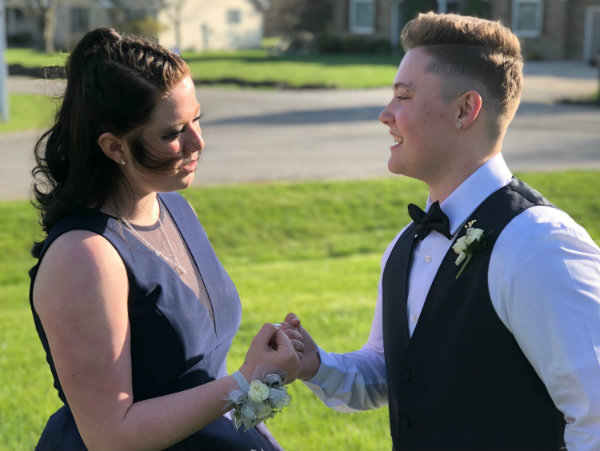Biases exist – even in healthcare.
“Our patient base is increasingly diverse, so building teams with broader backgrounds and experiences can only help us serve patients better,” said Kayla Banks, vice president, Women’s and Children’s Service and Graduate Medical Education and co-chair, Foundation Day.
Carle’s 61st Foundation Day examined diversity and inclusion in healthcare from a patient-centered perspective, bringing together providers, clinicians and administrators to identify potential solutions and tools for promoting cultural competency, helping healthcare providers develop additional empathy for the patients they treat and people with whom they work.
“Hearing from real patients who’ve experienced real bias is eye-opening,” she said. “Sometimes it takes patients speaking up to remind us that we’re confronting this head-on every day in healthcare.”
 Blair Rowitz, MD, associate chief medical director, associate dean, Carle Illinois College of Medicine and co-chair, Foundation Day, said appreciating differences and experiences can greatly impact innovative solutions to common healthcare issues.
Blair Rowitz, MD, associate chief medical director, associate dean, Carle Illinois College of Medicine and co-chair, Foundation Day, said appreciating differences and experiences can greatly impact innovative solutions to common healthcare issues.
One solution implementing next week addresses transgender patients. An upgrade in the electronic medical record system now allows the gender field to capture patients’ sex and gender beyond their legal or birth sex.
A quick checkbox seems small, but will have a big impact for Kasey, 18, from the Mattoon-Charleston area. Born female, Kasey identifies as male and undergoes weekly hormonal treatments.
Tammy Kennedy, Kasey’s mom, said little things make a big difference. “Getting his preferred name and gender on his medical record to cue workers to use the proper pronouns helps put him at ease.”
She advocates for better systems to have sensitive conversations about biases.
“It’s unintentional, but still hurts,” Kasey said. Still, a checkbox won’t solve the larger issue.
“I am who I am. I’m comfortable in my body,” Kasey said, “It’s important for my doctor to know my medical background, but the rest of the waiting room doesn’t.”
Kasey realizes not everyone understands his journey, but simply asks for respect.
“Just call me Kasey,” he says. “It’s no different than William preferring to be called ‘Bill.’”
Bariatrics patient Julie Humphrey said, “People come in all shapes and sizes, and we’re all human beings. We all bleed red,” she said, adding, she’s experienced obesity bias when she was pregnant. She was told don’t gain any weight – just eat vegetables.
“That wasn’t right. I wanted to just get up and leave. Just because you’re overweight, doesn’t mean you’re not sick or need help,” she said. “When you have a sinus infection or pneumonia, you still need help.”
They both applaud Carle’s efforts, but hope discussion and training is ongoing. Providers agree.
“When we don’t have clinical solutions to problems for difficult to manage conditions such as behavioral health, addiction, obesity and chronic pain, blame can be inadvertently placed on the patient,” Dr. Rowitz said. “Better understanding our own biases and being aware they can impact our interactions changes the game and results in better outcomes for patients.”
 Foundation Day discussions and learning reinforce data showing positive outcomes for patients when healthcare providers understand diversity and inclusion.
Foundation Day discussions and learning reinforce data showing positive outcomes for patients when healthcare providers understand diversity and inclusion.
“It helps with patients seeking access to care, patients complying with their care plans and higher patient satisfaction,” Dr. Rowtiz said.
Diversity in the workforce also improves problem solving and collaboration. Organizers say awareness and education aren’t enough.
“We’re working to change our behaviors and decision-making processes in ways that acknowledge our own biases and how they might affect our interactions with individuals – patients or team members,” he said.
Categories: Staying Healthy
